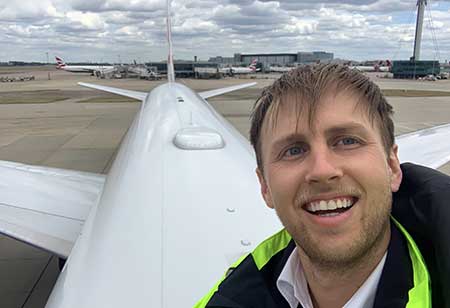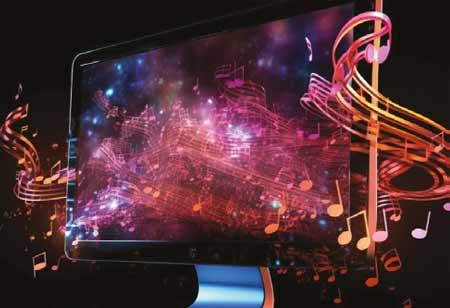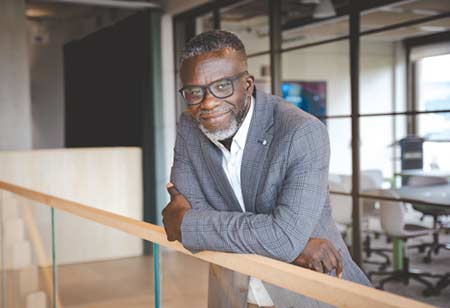THANK YOU FOR SUBSCRIBING

Invisible Architecture Enriching Hospitality Where Guests Feel Valued
Jon Mcmillian, VP of Marketing and Ecommerce, Ad1 Hospitality

 Jon Mcmillian, VP of Marketing and Ecommerce, Ad1 Hospitality
Jon Mcmillian, VP of Marketing and Ecommerce, Ad1 HospitalityJon McMillian is Vice President of Ecommerce & Marketing at AD1 Hospitality, leading digital strategy, e-commerce and guest experience innovation across the company’s portfolio. His career began in the U.S. Air Force in public affairs, where he discovered a passion for service and storytelling that shaped his path into hospitality. With 17+ years of leadership experience spanning Tropicana, Columbia Sussex and El Dorado Resorts, Jon is recognized for driving AI-driven transformation while preserving the human connections that define hospitality.
Shaping the Future of Hospitality through Innovation
My career trajectory began in the United States Air Force as a Public Affairs Representative. Part of my job was to make sure everyone visiting the base from US Senators, Russian Generals, National Media and local students etc., were taken care of. That’s where I got my start in the world of hospitality. It was a natural fit for me because it’s where storytelling, service and innovation all converge. Early on, I enjoyed working on initiatives that taught me the power of aligning guest perception with operational excellence. Later, I became deeply interested in how technology could not only support but elevate that alignment. Joining AD1 Hospitality was a natural progression. I wanted to be part of a team that embraced innovation while staying rooted in the fundamentals of service and hospitality.
I’ve always been fascinated by the intersection of human behavior and technology. In hospitality, I discovered a world where both coexist—where emotion, memory and service converge with systems, tools and data. Over time, I realized that the future of hospitality wouldn’t just be about stellar service and providing great accommodation but about orchestrating experiences that are deeply personal and seamlessly enabled by technology. That realization led me here, where I could pursue a vision: harnessing innovation not as a disruptor to tradition, but as a force that deepens the essence of hospitality itself.
Liberating Staff from Transactions to Transformations
I’ve learned to see technology not as machinery but as possibility. My leadership style is rooted in curiosity— asking “What could this mean for the way we serve?” instead of “What problem does this fix?” Marketing taught me the power of narrative and digital transformation taught me the discipline of experimentation. When I evaluate AI, robotics or any emerging technology, I’m thinking about how it might reshape the guest journey, shift the role of our teams or unlock a new dimension of personalization. I lead by encouraging teams to embrace the unknown—because the unknown is where transformation lives.
“When I evaluate AI, robotics or any emerging technology, I’m thinking about how it might reshape the guest journey, shift the role of our teams or unlock a new dimension of personalization.”
What excites me most is not just efficiency, but how AI has redefined immediacy. Hospitality at its core is about anticipation and AI-driven tools bring us closer to that ideal. Guests can now have their needs met in seconds, without friction and that simple act of immediacy changes their perception of the entire stay. AI chatbots and telephony systems are not just handling requests; they are learning patterns, predicting the needs of our guests and shaping a more fluid experience. The real impact is that staff are liberated from the transactional and empowered to focus on the transformational—the moments that create joy, loyalty and memory.
Preserving Human Warmth in a Digital Age
Hospitality has always been about personal connection. Automation can never replace that. It simply serves as the invisible architecture that allows human warmth to shine more brightly. My principle is simple: technology should handle the tasks that distract from connection, not the connection itself. A robot that delivers luggage is not removing authenticity, it’s enabling a front desk agent to step out and have a genuine conversation with a guest. In that balance, automation becomes a stagehand, while people remain the storytellers.
Balancing Intuition and Identity in the Age of AI
The future will be defined by personalization that borders on intuition. AI will dissolve the seams in the guest journey, making booking predictive, check-in invisible, inroom experiences adaptive and service anticipatory. We’re heading toward a reality where the hotel doesn’t just react to a guest, but actively knows them. Imagine walking into a room where the lighting, music and even the temperature reflect your past preferences without you ever asking. That’s where we’re going: hospitality that feels less like a transaction and more like being recognized as an individual.
Anchor innovation in purpose. Technology should never be a gimmick, it should be a mirror reflecting your brand’s values in a new medium. Leaders must ask: Does this deepen trust or erode it? Does this reinforce who we are or confuse it? My advice is to pilot boldly but implement thoughtfully, ensuring that every technology integration enhances both efficiency and empathy. Guests trust brands that remain human, even as they embrace the future. The opportunity is not to replace humanity with AI, but to amplify humanity through AI.
Read Also























ON THE DECK